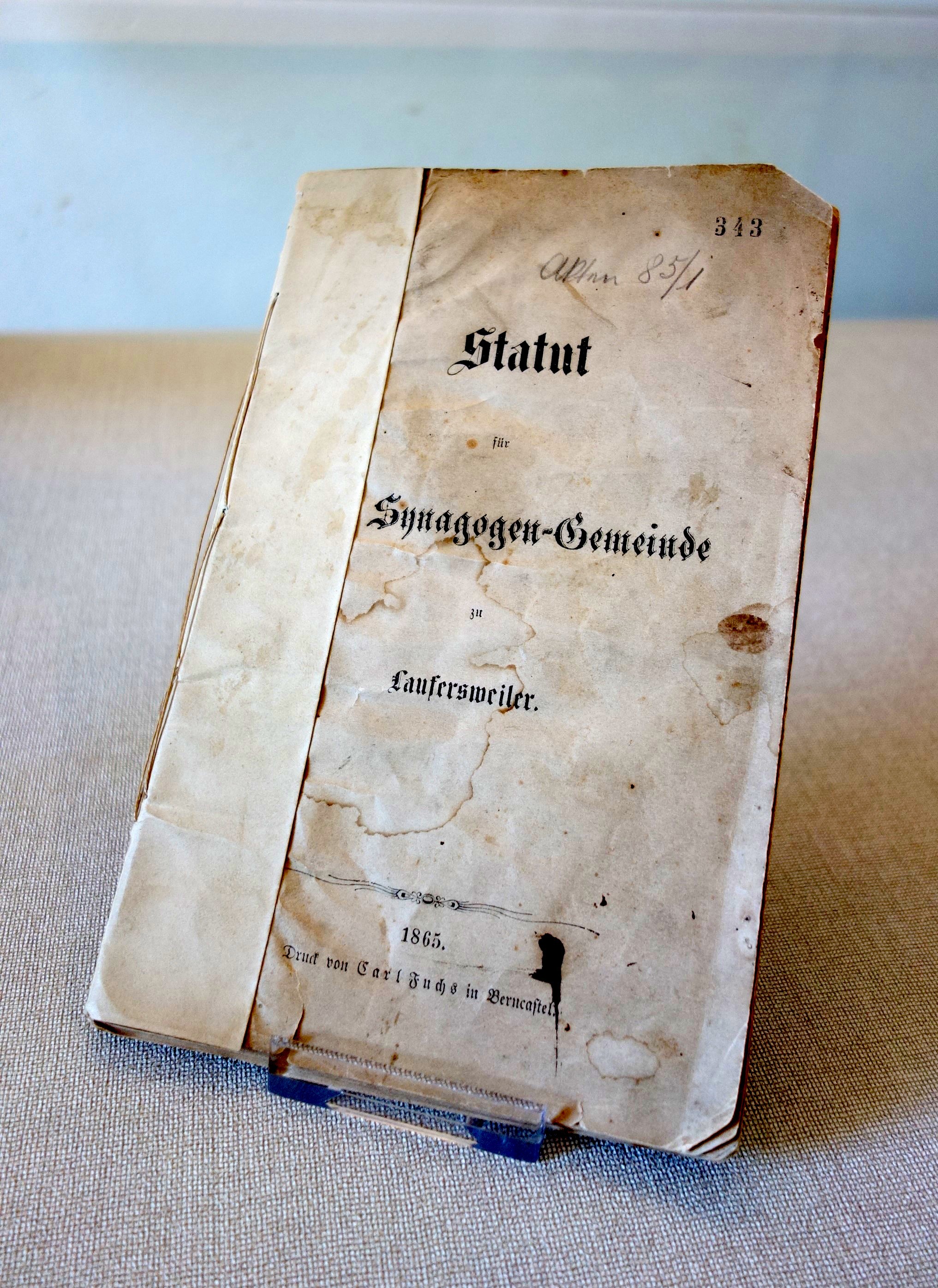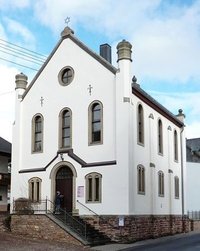This 32-page paper booklet from 1865 comprises the statutes for the synagogue community in Laufersweiler, with organization of the Jewish community stipulated In 14 chapters.
The Prussian Jewish laws issued in 1847 stipulated that communities be granted status as legal entities governed by public law. This law provided for the formation of synagogue districts, which obligated all the Jews living therein to be members of the community and pay taxes. Members made contributions to support the administration of their religious community, the construction of a synagogue or school, or the establishment of a cemetery or a Mikveh (ritual immersion bath) on the basis of their respective incomes. The move by person into a Jewish community was commonly accompanied by a one-time payment, which effectively made the new resident a joint owner of the synagogue.
Accordingly, these rules are also stipulated in the synagogue statutes for the Laufersweiler community. Moreover, everyone was „bound“ to take on an unpaid, honorary post in the community. A representative assembly regulated all matters, such as the preparation of a budget or the hiring of a teacher, who oftentimes also served as a prayer leader or a kosher butcher. The representatives elected a board who conducted the business dealings of the Jewish community. No rural Jewish community in the wider region could „afford“ their own rabbi.
The Prussian state reserved their right to carry out extensive control measures. For this reason, the civil mayor directed the election of representatives, he approved the budget and assessment register, and he intervened when disputes broke out within the synagogue community.
With the law relating to the „legal status of the Jewish cultural associations“ from the 28th of March 1938, the state repealed the status of communities as legal entities governed by public law, which marked the end of organized Jewish community life in Germany.
en

